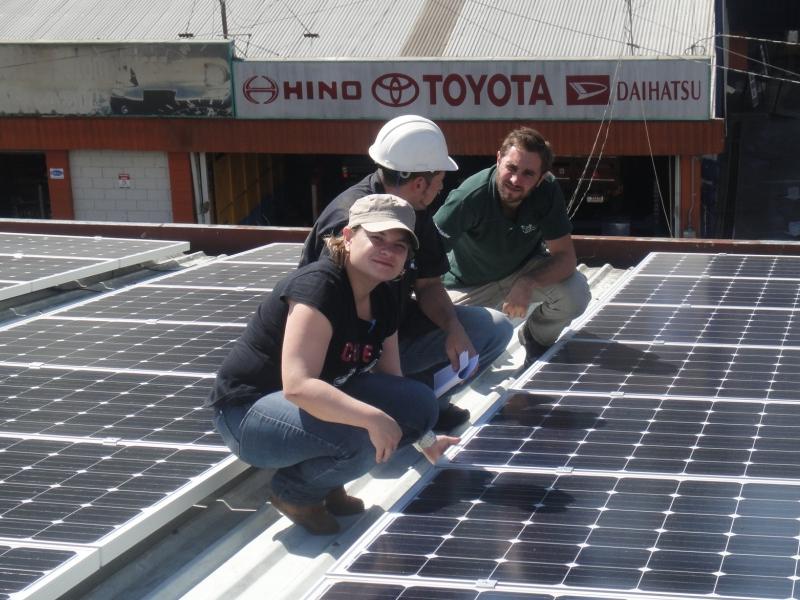
A research project led by the University of Costa Rica (UCR) Research Center for Electrochemistry and Energy Chemistry (CELEQ) aims to create a new clean energy model applicable to the coffee milling industry in Central America. The model takes advantage of power generation opportunities and improves energy efficiency to address the problem of climate change adaptation and thus reduce social problems with recurring crises in the price of coffee.
This ECPA initiative will focus on energy efficiency, renewable energy, the use of more efficient and less polluting fossil fuels and energy and infrastructure failure. “The project will help growers protect their businesses by reducing one of the highest costs of production —energy— by using renewable energy,” explained Cindy Torres, UCR engineer and researcher. The project is divided into three main components: technology, regulatory framework and social awareness. The first includes the installation of a 15-kilowatt photovoltaic system on the Coffee Growers Cooperative “CoopeTarrazú”, located in Tarrazú, and a 3-kilowatt wind tower at the San Isidro de León Cortés Coffee Growers Union (UNDECAF). The field work to be conducted in CoopeTarrazú will contemplate the efficiency of drying coffee beans with a prototype device that will maintain its properties as well as its aroma and flavor. The data collected will be used to develop a practical manual to encourage farmers to use renewable energy in their production processes. The regulatory component of the initiative will include a proposal to change the regulatory framework on energy production for distributed generation in Costa Rica.

 View Map
View Map